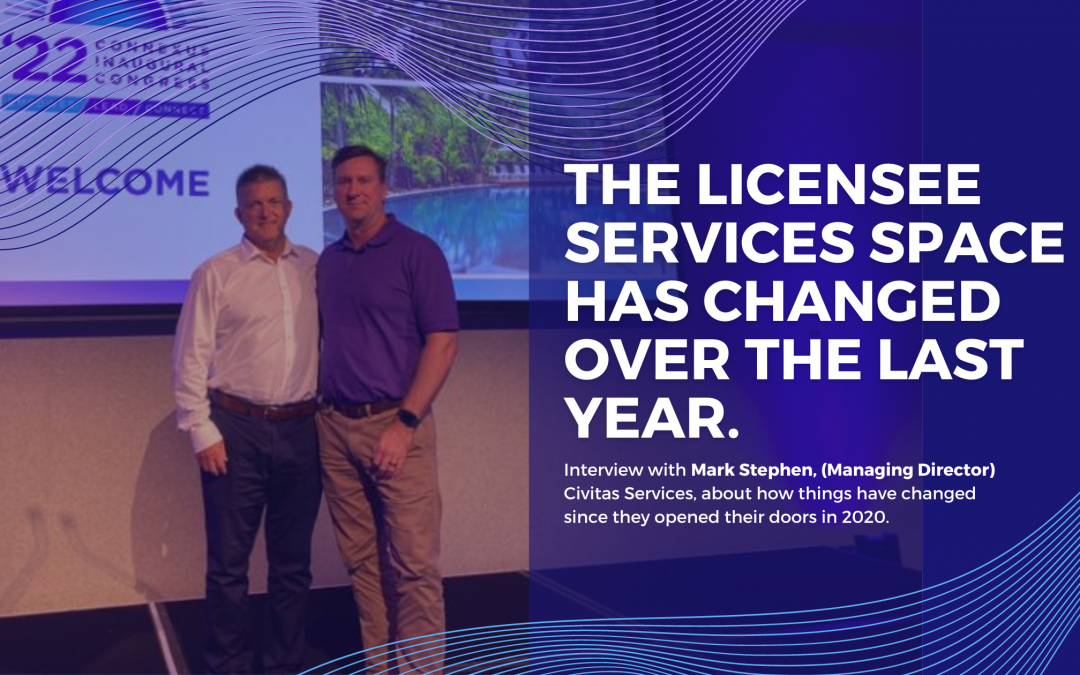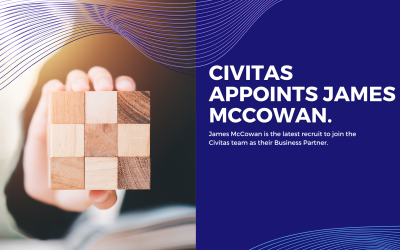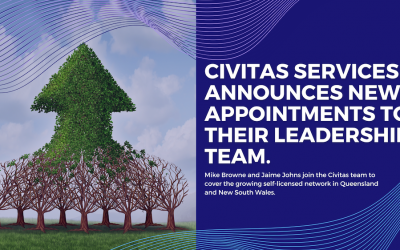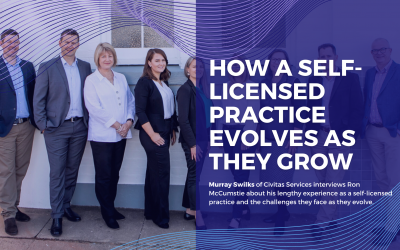Interview with Mark Stephen, (Managing Director) Civitas Services, about how things have changed since they opened their doors in 2020.
Civitas Services (previously Connexus Solutions) officially launched eighteen months ago. You will have noticed that we have had a name change. An international company had trademarked a similar name, so we needed to change our name to provide clear air for the business going forward. The reason for Civitas – it’s Latin for a body of people constituting an organised community which resonates with us and the reason why we exist today.
We’ve had an enormous first year or so, and Mark recently took part in an interview discussing exactly what has taken place since the business launched and what the licensee services landscape looks like, eighteen months later.
Question: How have you seen the self-licence space over the last 18 months?
MS: We have been humbled by the quality and calibre of businesses that have joined our network. We talk about high-performing businesses and we mean this in relation to not only how they operate commercially and compliantly, but most importantly how they care for their clients. Our firms not only provide market-leading technical and strategic advice but offer true sympathy and care for their client’s wellbeing. This has been paramount over a pandemic-influenced period for all clients.
Not only have we seen tremendous growth in our membership, but we have continued to see the growth and expansion of self-licenced support services across the Australian marketplace. We spoke about this in an article last year, which was about debunking the myths about self-licencing. The continued growth in dedicated support services is a testament to this change in the market. And the trend will continue as more experienced advisers leave the larger licensees to pursue a business model that is more flexible, independent, open architecture, commercial better off and allows the business to fulfil their business strategy
Question: In the original article Mark, you talked about a number of ‘myths’. What have you found to be one of the biggest misconceptions when speaking to practice owners?
MS: There are a few, but the most common one is that running your own AFSL is still too complicated, too onerous and time-consuming; and it takes the key advisers away from the business and from servicing their clients. We continue to challenge this notion and probe into why business owners think this is the case.
We’re not saying there are no obligations and requirements around running your AFSL, we’re saying that it’s important to partner with the right risk, compliance and governance supplier to make this process as easy as possible. As our membership concentrates on smaller AFSLs, i.e. less than 10 authorised representatives, we know these sorts of firms can manage the responsibilities with the right systems in place. And what we are hearing, it takes on average, a day a quarter for our Responsible Managers to actively administer their own AFSL obligations. But that is made easier when they engage our financial services Law firm and subscribe to their digital compliance portal and follow their lead.
One could argue that being sublicensed to one of the larger institutions is more time-consuming. This is because of the additional layer of compliance they’re obliged to implement to satisfy ASIC requirements. ASIC states that “what you need to do to comply with your obligations will vary according to the ‘nature, scale and complexity’ of your business”.¹
Question: On the theme of the myths around self-licencing what other comments are you hearing?
MS: The next most common one tends to be around cost. We discussed that in our article last year and mitigated the propaganda from the larger institutions, that it’s too expensive to run your own AFSL.
The main operational costs (excluding people) of running a financial planning business with your own AFSL, fall into legal and compliance support. The next major item is professional indemnity insurance. We see the third major cost is related to technology – this one is a big one and multi-layered. We’re not only talking about Xplan or Plutosoft but other technology like Microsoft Office, Xero and any other applications that support you in running your financial planning business. A lot of the providers out there do offer wholesale pricing for some systems though, similar to what you find in major dealer groups.
All this combined can be less than what you would pay to be sublicensed with one of the larger groups. In the advice space over recent years, we have seen reduced subsidisation or cross-subsidisation from vertically integrated businesses to their advice areas. Meaning they rely more and more on the franchisees to at least cover their own costs. The aim for a large licensee is now to at least break even, resulting in more appropriate (and somewhat more expensive) franchise fees.
A lot of the people we speak to about self-licencing are quite surprised when all the costs are itemised. The pricing is very transparent and businesses have the autonomy to choose the various service providers that best suit their business model. We have seen our pricing model and commercial terms are far more favourable in this instance than under a larger dealer group.
Question: Professional indemnity insurance pricing has changed and insurance is getting harder to obtain. Is this what you are experiencing? What other ‘real’ issues associated with self-licencing do businesses need to be aware of?
MS: Without a doubt the transition to self-licensing is challenging. But we see it as an investment in the future of your financial planning business. Our members tell us the first year of holding their own licence is exciting and challenging at the same time. There is a lot of deprogramming and discovery. For a lot of practice owners, this is the first time in their financial planning careers that they have dealt directly with their service providers, rather than via their dealer group.
At least the first six months of holding their new licence are when they learn to get into a rhythm of managing their AFSL. Beyond that, the business is able to continue to work on improving the various aspects of its operating model to enhance client value, refine processes, build new opportunities, innovate and grow.
PI Insurance can be difficult to obtain, but once again we have a preferred supplier and broker who has over 20+ years of experience and expertise in this field. He has direct access to the major players and so far, has been instrumental in obtaining the right cover, the most appropriate excess and all of which, for the right price. We continue to monitor this space as our members expect us to and rely on our lead here.
Question: You’ve had a recent name change. What else has changed within your business?
MS: Our business continues to grow in member numbers, services and opportunities. However, our purpose and passion have remained the same. We continue to be humbled by the great businesses that are a part of our membership today and those wishing to join. Dealing with high-performing practice owners is what we enjoy and helping them improve is what we’re passionate about.
We are also quite selective in terms of new member firms joining us – we definitely look for the mechanics and dynamics of suitability and cultural alignment. Once again our existing members have high expectations for us to oblige and we like to keep focused on our mantra of ‘by advisers, for advisers’.
We’re very excited about the year ahead. Come and talk to us about how we can help.
Latest News Posts
Civitas appoints James McCowan
Civitas Services Australia Pty Ltd is delighted to announce the appointment of James McCowan as Business Partner.
Civitas appoints Mike Browne and Jaime Johns
Civitas Services Australia Pty Ltd is delighted to announce two new appointments to their leadership team as the industry’s appetite for self-licensing continues to grow.
How a self-licensed practice evolves as they grow
Murray Swilks, Director, Civitas Services, interviews Ron McCumstie about his lengthy experience as a self-licensed practice and the rewards and challenges they’ve experienced as they evolve.

Phone Click here to call
Email Click here to send an email
Copyright 2022 Civitas Services. All Rights Reserved
Privacy Policy | Terms & Conditions




